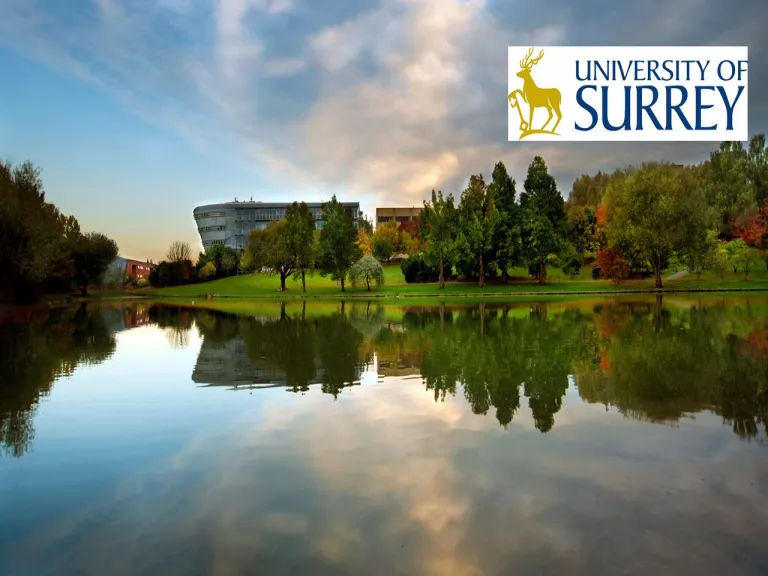
The University of Surrey is home to dedicated people who cultivate life-changing ideas. It has been a great site for students who are inspired to succeed in their respective fields. The portfolio of courses offered here is diverse, inviting applicants of different ethnicities. Let's move the cursor towards the courses offered, and we will see a large group of research graduates in the linguistics section. The focal point of this article is explaining the doctoral degree in linguistics here with important attachments. To learn what it has got in the box for you, keep scrolling!
The school of languages and linguistics is highly research-oriented, covering the applied and theoretical aspects. Language-related researches can have practical applications, and the University greatly looks forward to it. Research graduates go through the detailed grammatical structure of different languages, commanding their diversity. Ph.D. graduates in the linguistic department get serious exposure to:
Ph.D. applicants will get exposure to the grammatical categories of different languages. With a deep understanding of theoretical and practical applications of various languages, students explore linguistic morphology. Moreover, they will learn multilingual practices applied in educational and business contexts anywhere in the world. The University of Surrey is on a mission of inculcating a strong multi-disciplinary approach in doctoral students through a deeper understanding of linguistic knowledge.
During the 3-4 full-time doctoral degree, you will get the time to understand the theory-practice consequences of a language. The research attempt will take you closer to a particular nation's cultural norms and aspects, advancing your knowledge. If you find yourself standing among the interested but confused students, go to study Consultants in Islamabad for more details. Their guidance will walk you through the entire process, leaving you in a position to apply.
We talked about the theoretical and practical consequences of different languages; who would help you out? Well, here is the answer! Surrey Morphology Group is a set of linguistic professionals dedicated to teaching you the diversity and implications of different languages. These professionals help students undergo research projects, enabling them to learn the grammatical categories of different languages.
SMG receives financial assistance from different organizations to help students fund their research tasks. Some of these organizations are European Research Council, Arts and Humanities Research Council, and British Research Academy.
The University offers doctoral students a range of fields to undergo their research in. From applied and theoretical linguistic themes, students can choose whichever domain clicks them. To assist you in your quest, here are the most prominent themes offered at the campus.
Read also: University of Surrey – Programs, Tuition Fee, and Campus Life
If you are interested in applied linguistics, the following are some of the University's research themes.
Oracy skills in higher education
Language learning and corpora
Intercultural communication in commercial and educational settings
Face Management and (im)Politeness
Ethnolinguistic Minorities
Corpus-based Lexicography
Language ideology and practice in transnational areas
Linguistic issues emerging from Internationalisation
The aforementioned research themes are taken from University website
Research graduates who choose to go to the theoretical side will work on the following research domains.
Theoretical Morphology (Including Network Morphology and paradigm Function Morphology)
Morphological Interfaces
Linguistic Typology (including Canonical Typology)
Language Documentation and Description (including Austronesian, Nakh-Daghestanian, Niger-Congo, Nilo-Saharan, and Tibeto-Burman languages)
The aforementioned research themes are taken from the University website.
The University of Surrey is hard to get into since it is an internationally regarded school for literature and linguistics. The admission criteria vary based on the country you are applying from. We will discuss the entry requirements for Pakistani students.
Students applying for a Ph.D. in linguistics are expected to hold a good academic record (2:1 or equivalent) with a Master’s degree. The topic of MA must be relevant to linguistic or applied linguistic.
Students from Pakistan need to submit a language proficiency certificate like IELTS and TOEFL. IELTS requirements for International students are:
The University also offers pre-sessional English language courses, enabling the students to acquire efficiency in the English language.
Read also: Pass IELTS with 8 bands
Selection is made based on the thorough assessment of the student's application and academic record. Moreover, the Management evaluates the entry test and interview performance of the students. Upon selection, students will be put on probationary status, subjected to their initial stage performance. Once the probation is successfully completed, applicants are enrolled as full-time doctoral students.
These are general entry requirements; however, you can have detailed information from study Consultants in Islamabad. Consult them to get a concrete insight into the admission process and entry needs.
Educational consultants have a vast network, channeling different universities across the globe. They assist in various domains like studying abroad, visa processes, and university consultation. Are you dreaming of going abroad too? Great! Consult these professionals and start your application process today.

- The Johnson & Johnson COVID-19 vaccine has been pitched with one major advantage over its counterparts since it was authorized

- Jesus, Castlevania season 4. You didnt have to go this hard. You impressed everyone in season one by simply being a decent anime

- Some are, some arent.If they are getting genuine, the universities for health care transcription are possible using the knowledge

- It is known to everybody that condition is very competitive and it has become a very difficult situation for finding a job in information technology field.